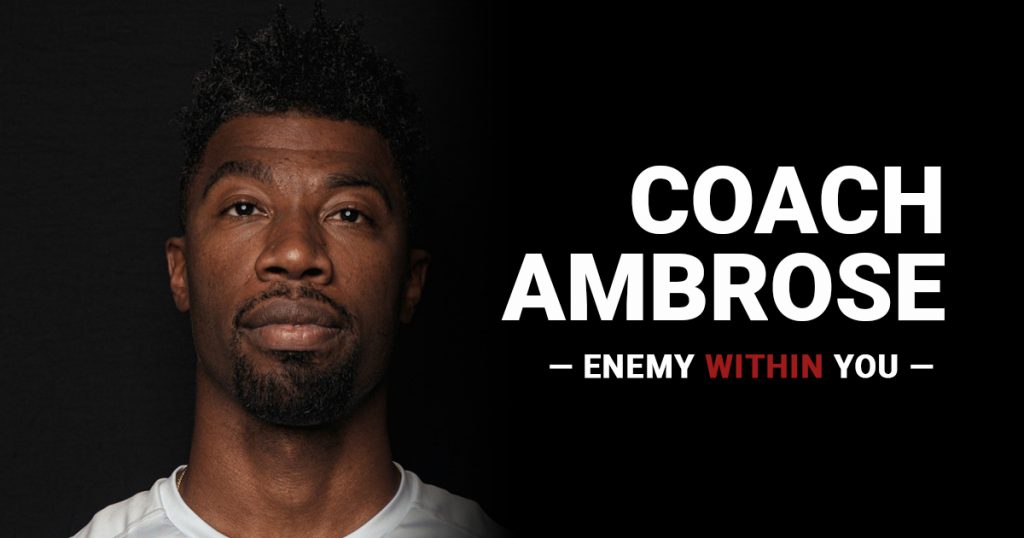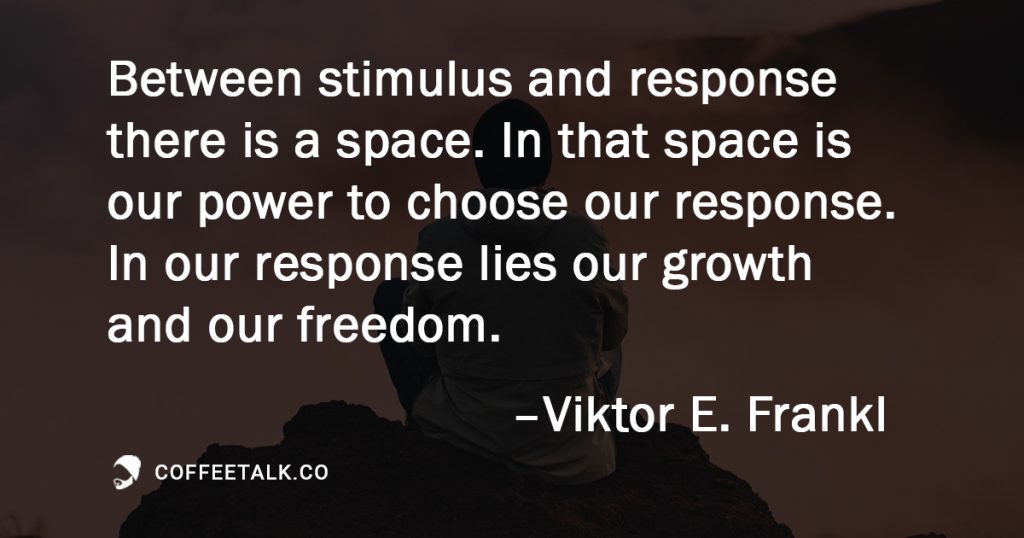Would you change any of your instinctual reactions?
If you’re anything like me, you constantly look for ways to improve yourself. Studying your reactions is a way to do that. It starts with self-awareness — and let’s face it, some people are more self-aware than others.
I recently published a conversation with Mental Performance Coach, Ambrose WB. He highlighted the distinction between reacting and responding.

A response is delayed. A reaction is automatic.
A response requires thinking. A reaction is thoughtless.
A response eventually becomes a reaction.
Another way to think of it: Reactions are deep-seated responses.
This is great news. It means you’re the master of how you react and respond to life situations, events, and people. It also means you’re fully responsible for your part of any outcome.
How can you improve the outcomes in your life?
Here’s the formula Coach Ambrose teaches his clients:
Event + Response = Outcome
His clients keep an “event + response log” for outcomes they wish to influence more. This is key for his clients to increase their self-awareness. Ambrose then helps them create better responses according to their log.
When I learned about this, it reminded me of how I was trained in martial arts as a teenager. We repeated the same scenarios and movements over and over again until they felt natural. The techniques eventually became instinctual.

Ambrose pointed out that my instructors did with me what he does with his clients. They taught me responses until they became reactions. Yes, some were lethal, but that could be positive depending on the situation.
Of course this opened up plenty of discussion regarding positive versus negative reactions.
There’s plenty more we talk about such as:
- The 10 Pillars you can use to improve performance
- Why goals aren’t a map for success
- How to reliably anchor yourself using your language and breath
Listen to Process Over Outcome With Coach Ambrose WB
Use It Or Lose It
Think of a recent outcome you disliked or even despised. The context doesn’t matter. It can be related to a relationship, work, or hobby.
Write down and answer the following questions:
- What was the outcome and why didn’t you like it?
- What event kicked off the process?
- What was your reaction?
- What kind of response could have led to a better outcome?
This exercise increases your self-awareness. You can’t fully control any outcome, but you can heavily influence it.
Thanks for reading this week.
– Luis
PS – If you’re an Apple user and have listened to the podcast before, I would appreciate it a ton if you left a review. They all count 🙏🏻

